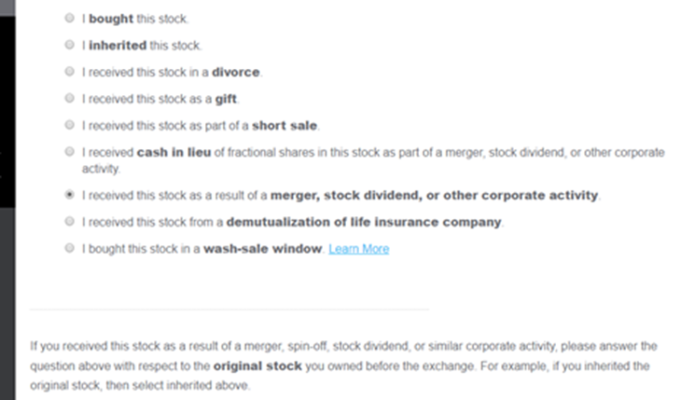Steelart99
Recycles dryer sheets
- Joined
- Apr 24, 2012
- Messages
- 184
This is my first year retired and first year on ACA.
I'm trying to get a handle on my taxes for next year and have to control where I take income since the ACA is based on MAGI. I plan to sell some stock and as I understand it, the long term capital gains is the amount used for MAGI.
Now, the issue is that the stocks were gifted to me. As I understand it, the LTCG's would be the sale price minus the cost basis of the person who gifted it to me.
But ... I want to sell the reinvested dividends first (using Specific ID's).
The question is, do I have to used the cost basis from the giftor for the reinvested dividends, or do I use the purchase cost at the time that the dividends were reinvested?
I'm trying to get a handle on my taxes for next year and have to control where I take income since the ACA is based on MAGI. I plan to sell some stock and as I understand it, the long term capital gains is the amount used for MAGI.
Now, the issue is that the stocks were gifted to me. As I understand it, the LTCG's would be the sale price minus the cost basis of the person who gifted it to me.
But ... I want to sell the reinvested dividends first (using Specific ID's).
The question is, do I have to used the cost basis from the giftor for the reinvested dividends, or do I use the purchase cost at the time that the dividends were reinvested?
Last edited:


